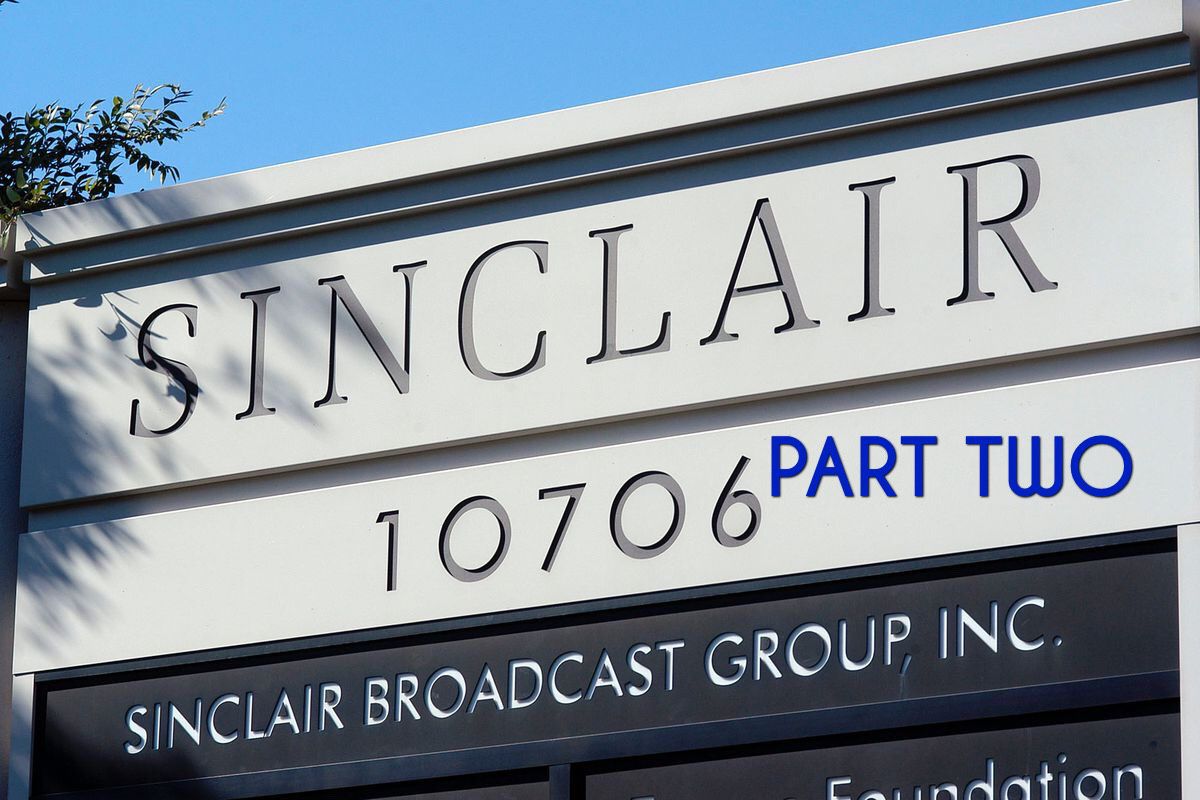
08 August 2017
TRENDING
A coalition of TV and media industry entities is urging the FCC to reject Sinclair Broadcast Group's proposed $3.9 billion acquisition of Tribune Media, arguing that the combination would give Sinclair a dangerous level of power over the local TV marketplace.
Today [August 7] marks the deadline set by the FCC for the initial round of public comments in opposition to the merger agreement reached in May. The deal would give Sinclair control of more than 200 stations nationwide, expanding the Baltimore-based station owner's presence to the nation's largest TV markets for the first time.
Executives from the American Cable Association, which represents smaller cable operators, Common Cause, the Competitive Carriers Association and the Computer and Communications Industry Association held a conference call Monday morning to outline their grave concerns about the Sinclair-Tribune deal.
The executives are urging the FCC to reject the merger outright on the grounds that Sinclair would have what America One News Network president Charles Herring called "excessive, unbalanced market power" over many players in the media biz.
Michael Copps, former FCC commissioner and now an advisor to Common Cause, sounded the alarm about the potential for Sinclair to force cost cuts on the news operations at its local stations. He noted that past broadcast mergers have lead to "wholesale firings of journalists so that behemoths can finance these ridiculous transactions." He also raised the specter of "Wall Street expectations superseding consumer needs."
Herring argued that Sinclair's clout would allow them to push for higher retransmission consent rates for their local TV stations, which would raise programming costs and make it harder for MVPDs to carry independent channels such as America One, a conservative news network. Sinclair already has a reputation for driving hard bargains with MVPDs for carriage deals. Herring said the Tribune deal would only make it worse for independent channels.
"They're able to ask for ask for excessive rates currently for their broadcast services. That raises prices for the consumer and consumes programming budgets, preventing independent sources of programming from being able to complete deals with MVPDs for the fees needed to sustain themselves," Herring said.
Sinclair declined to comment.
Participants on the call agreed that there was no way for the FCC to impose conditions on the merger to mediate what they see as the harm done if Sinclair and Tribune were combined. Herring and others pointed to the lack of debate about the changes to FCC media ownership rules that are expected to be pursued under FCC chairman Ajit Pai. Earlier this year, the FCC moved to reverse a recent ownership rule related to TV stations that paved the way for the Sinclair-Tribune combo. The reinstatement of the FCC's "UHF discount" is being challenged in court.
"It violates the law and it violates the public interest," said ACA president Matthew Polka of the Sinclair-Tribune deal. "This is a group of very diverse voices saying this merger is bad for consumers and bad for the public interest."
Under the FCC's deal review timeline, Sinclair and Tribune have until Aug. 22 to reply to the opposition comments. Replies to the Sinclair-Tribune responses are due by Aug. 29.
Satcaster Dish Network, which has tangled with Sinclair in the past over retransmission consent deals, also filed a petition Monday urging the FCC to reject the deal. Dish's filing cited the potential for the enlarged Sinclair to raise MVPD costs for consumers by pushing for high retrans fees and the "systematic assault against local content" by what Dish described as "centrally produced content" dictated by Sinclair's corporate priorities.
The Sinclair-Tribune merger has drawn public scrutiny and media attention because it would heighten Sinclair's status as the largest TV station in the country. The company's long track record of promoting conservative viewpoints in its newscasts has drawn harsh criticism that the merger would expand the company's influence at a time of great cultural and political division.
As of Monday evening, the FCC has received 154 comments in opposition to the merger, many from individuals such as James Hyder of Las Vegas, who wrote: "The consolidation of media outlets is contrary to the best interests of the country, democratic process, and freedom of speech."
Margie Peterson of Dexter, Mich., reflected the politically charged concerns around the deal in her comment: "VEHEMENTLY Opposed to state run propaganda TV!! We are not a dictatorship!!!"
Kathleen Hammond of Boulder, Colo., cited her concern about the size of the enlarged Sinclair: "Do not allow more consolidation of TV station ownership. Sinclair already owns too many stations. Independent stations need to retain their independence."
This article appeared in Variety on August 7, 2017
This is one of a two part series of posts about the Danger to Democracy Sinclair poses with its threat to make Trump Television a reality all over America.
###
August 8, 2017